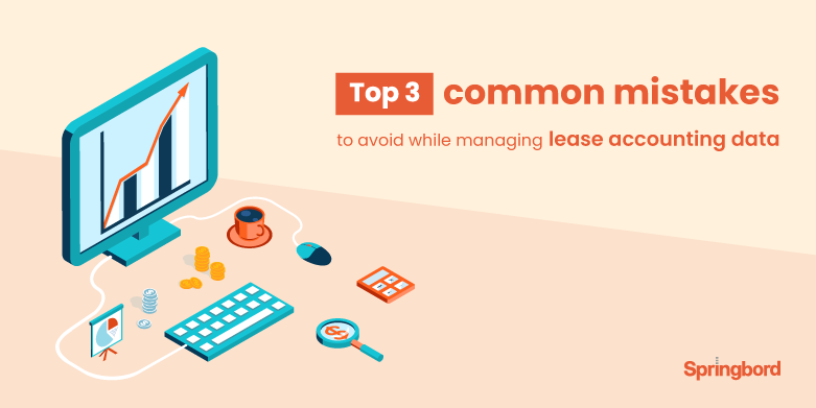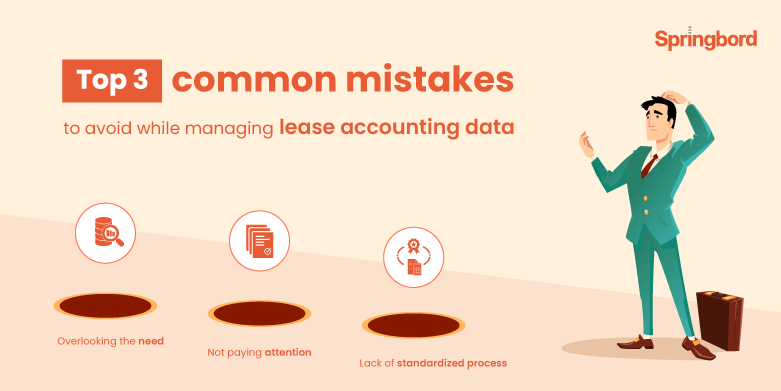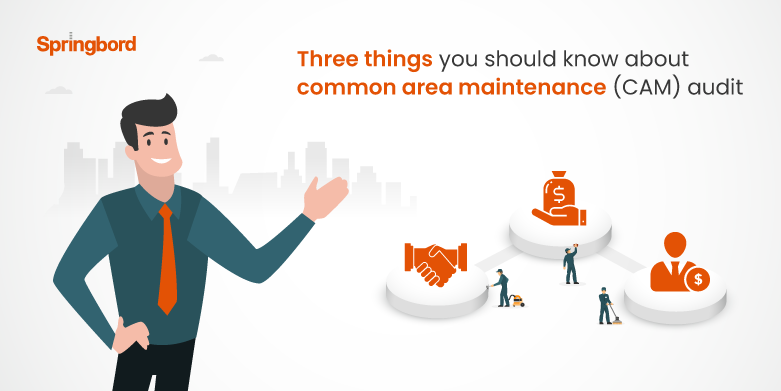 Read time 2 min
Read time 2 minEnsuring compliance with FASB ASC 842 and IFRS 16 the new lease accounting standards entails a lot of effort and processes. While most of the companies especially with extensive lease portfolio have increasingly chosen to implement software solution to streamline, manage and maintain lease data, there still remains data gaps.
The new regulation places a huge demand on lease data management on an ongoing basis. It is therefore important that companies should focus on process and implement systems that help compile, process, and report lease data accurately. Here are some common mistakes that companies must avoid to ensure lease data is complete, clean, and accurate which in turn can facilitate ease of lease compliance.
Lack of standardized process for lease data collection
It is a complex project with dynamic elements, any gaps in managing data will have major impact on the accuracy of the financial reporting. It is therefore critical to sort, organize, plan, and establish a standardized process for lease data collection.
Currently, most companies rely on siloed and fragmented processes which can lead to data inaccuracies, duplication, errors, and even delays. Right from the start, companies need to ensure data collection is accurate, timely, and up-to-date. This warrants alignment of different stakeholders and training a dedicated team who can coordinate with those teams and collect relevant data from various sources.
Not paying attention to lease data validation
Another common mistake is not validating the data. Even at the risk of sounding repetitive, it is incredibly important to keep in mind that any data inaccuracy will affect the balance sheet under the new accounting standards. And yet most companies often find it difficult to validate every lease data point that goes into their balance sheet either due to lack of time, process, or skilled resources.
But this is a critical step that cannot be skipped. Once relevant lease data is identified and captured it needs to be validated using right models developed to test lease data before these data points are used in financial reports.
Overlooking the need for ongoing lease data management
Needless to mention that complying with the new lease accounting standard is not a one-time requirement. Therefore, not having a standard process for managing lease data on an ongoing basis will only result in compounding challenges year-on-year.
By establishing a streamlined process companies can benefit from the tools and data insights to improve leasing data management practices and in turn, make more cost-effective decisions. Ongoing lease data management will not only help ensure timely compliance but also optimize lease payments overtime through reliable and better insights.
Springbord has been helping companies not just effortlessly manage their lease data but also save millions of dollars with better lease management practices. To find out more about how we can help you ensure lease accounting readiness, stay compliant, and streamline lease data management, talk to us today.








